If your cat needs to be put down but you cannot afford the cost of euthanization, there are a number of options available and you can often receive support from local vets and welfare organizations.
We understand this is an extremely hard time and you want to do what is right for your cat.
The below options will help your cat without financial stress.
Contents
How Much Does It Cost To Euthanize A Cat?
Euthanizing a cat can cost between $100 – $300 in America and between £60 – £300 in the UK.
The procedure may cost more if you decide you would like your cat’s euthanasia to be carried out at home.
There are sometimes extra costs involved too, for example, the vet may need to do a physical examination before the decision to euthanize is reached, or there may be other medical supplies used during the process.
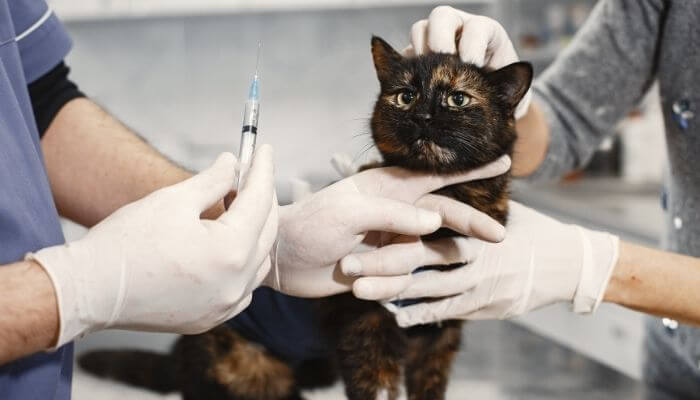
In addition to this, the veterinary clinic will give you options regarding what happens to your cat after euthanasia (cremation or burial).
Cat cremation costs around $150/£115 for communal cremation or around $250/£190 for individual cremation.
Burial costs will depend on the situation, home burial may be an option but there are regulations that need to be considered.
Burying a cat in a pet cemetery generally has a much higher cost of around $800/£600.
If you do opt for a home burial there are plenty of affordable ways you can make it feel more meaningful but setting up a tasteful cat memorial in the garden.
What To Do If You Have No Money To Pay For Your Cat To Be Put Down?
1. Contact the Local Vets
The first thing to do if your cat is unwell or dying is to call the vet.
You can discuss your cat’s condition with them and they will be able to advise you on what to do.
Although you may think the vet is out of your budget, many vets are willing to accept small payments or will help figure out a payment plan that will work for your situation.
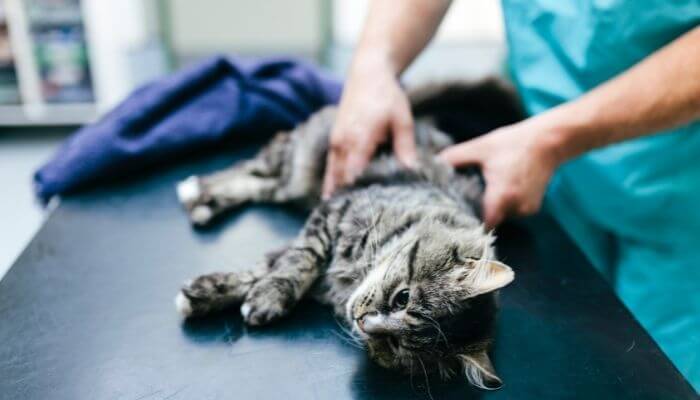
Remember, vets do not want to see your cat suffer so they will try to help find solutions that suit your situation.
Many veterinary clinics will have been in this situation before so they may have a procedure on how to handle this and possible payment options etc.
If the vet is not able to offer the procedure at a price you can afford, they may be able to offer you a good contact for a local shelter or low–cost clinic that helps in these situations.
Don’t rule this out because you are intimidated by the potential price, a simple phone call with the veterinary clinic may be able to take all these worries away.
2. Contact the Local Animal Shelter
If you are not able to take your cat to the vet, try calling the local animal shelters and ask them for help.

Most shelters and rescue organizations want to do what is best for the animal so will often be able to help in some way.
They may ask you to bring your cat in or they may be able to get your cat collected and transported to the shelter.
In this situation, you might have to sign your cat over to the shelter but they will be able to ensure your cat is humanely euthanized.
3. Ask Your Friends/ Family For Financial Assistance
Friends and family are often happy to provide support, all you need to do is ask.
Call your loved ones and explain the situation, it’s always better to speak to your friends and family before asking strangers for help.

You could create an online fundraiser but due to the nature (and time-sensitivity) of the issue, it is best to reach out to your loved ones directly so you can get the money needed to cover the costs quickly.
Online fundraisers require a lot of promoting for them to get noticed and for fundraising goals to be reached.
If you don’t want to ask for help and want to handle the situation independently, you could sell some of your belongings to cover the cost.
4. Contact the SPCA/ Welfare Organisations
There are some welfare organizations and charities that help fund veterinary care for pet owners who are struggling with finances.
As these organizations have limited funds they aren’t able to help everyone but it is worth contacting them and finding out if they can help your situation.
They may be able to help cover part of the cost but there is often a criteria regarding who the organization can help and how.
If the organization cannot help with the funds, they may be able to point you in the direction of low-cost clinics.
5. Check Your Pet Insurance
If your cat is insured, this might cover the cost of the procedure.
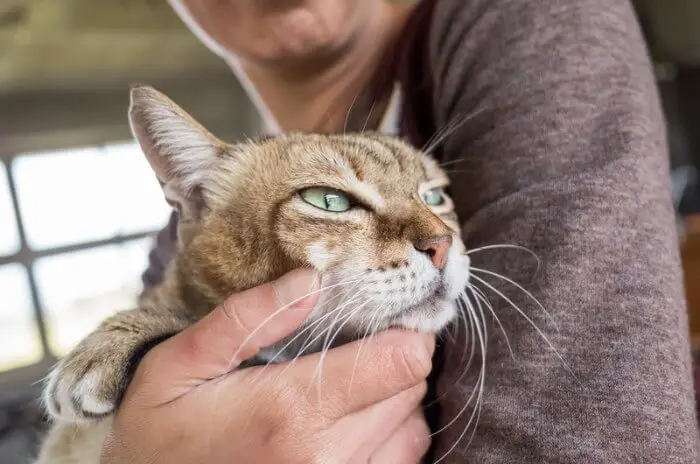
Insurance does cost a small amount each month but it can help you cover vet bills throughout your cat’s life.
Check your insurance to see what coverage you are getting and what procedures are covered.
6. Let Your Cat Pass Away Naturally
In some situations, it is best to let your cat pass away naturally at home.
Always talk to your vet about the situation so you can be sure you are doing what is best for your cat.
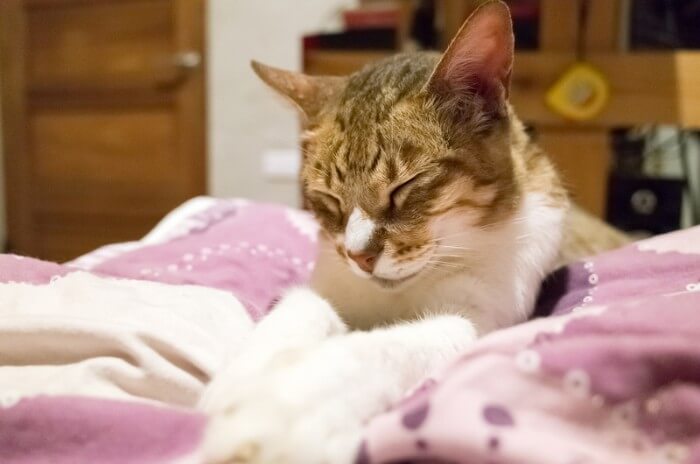
It is extremely important to make sure your cat is not suffering or in pain.
Always seek advice from a veterinarian, and don’t choose this route because you cannot afford the cost of the procedure.
As mentioned above, there are many ways you can get help and humane euthanasia for your cat without a large financial burden.
Signs That Your Cat Is Close To Death
1. Faint Heartbeat
If your cat is close to death, their heart rate will begin to feel faint and slow.
Check your cat’s heartbeat by feeling their heart with your hand and counting the beats for 15 seconds.
Multiply the number by 4 to get your cat’s heartbeats per minute.
In a healthy cat this should be between 140 – 220 beats per minute.
If your cat’s heartbeat is lower than this and the beats feel faint, it is a sign your cat is nearing death.
2. Faint Breathing
A healthy cat takes 20 – 30 breaths per minute but a cat close to death often has rapid breathing followed by laboured breaths as they try to get enough oxygen.

You can calculate your cat’s breaths per minute by monitoring how many breaths they take in 15 seconds and multiplying this number by four.
If your cat is breathing rapidly, heavily, struggling to take breaths, or is taking very few breaths they may be close to the end.
3. Low Temperature
When your cat is close to death they may struggle to hold their body temperature causing it to drop below 100 degrees Fahrenheit.
A cat’s temperature should be between 100 – 102.5 degrees F.
Use a thermometer to check your cat’s temperature.

If you don’t have a thermometer, you can feel your cat’s paws to give you an indication of their temperature. If their paws are cold it is a sign their overall body temperature is low.
4. No Appetite
It is common for cats to lose their appetite when they are unwell or close to death.

If your cat is not eating their normal meals, or not eating at all, this is a common indicator that they are nearing the end.
Your cat may also experience extreme weight loss during their later stages.
5. Unpleasant Odor
Finally, your cat may begin to smell bad.
This bad odor will initially be most noticeable on your cat’s breath.
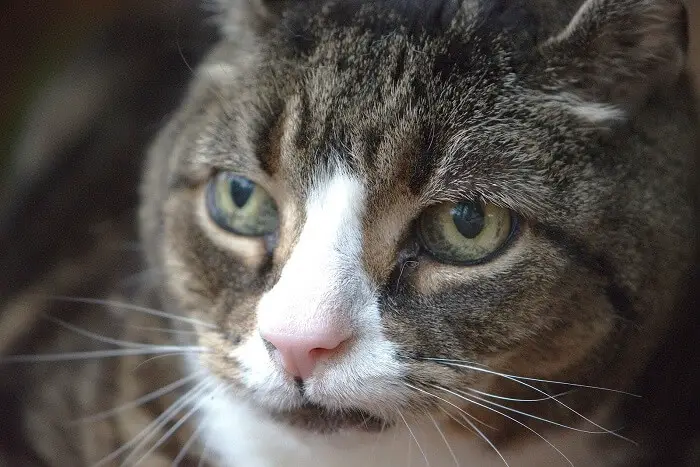
The smell will get worse over time and your cat’s body will begin to have an unpleasant odour too.
This odor is caused by your cat’s organs shutting down.

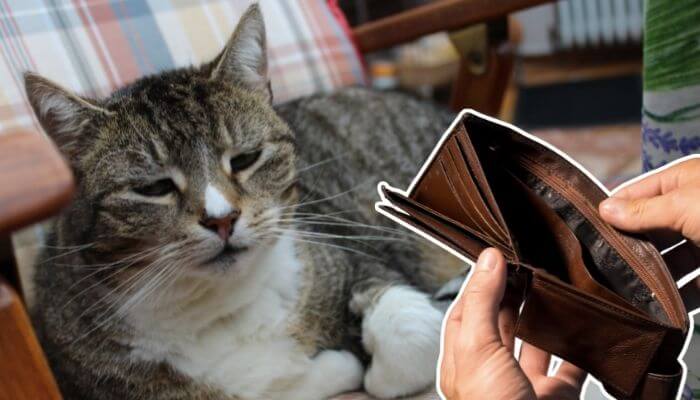
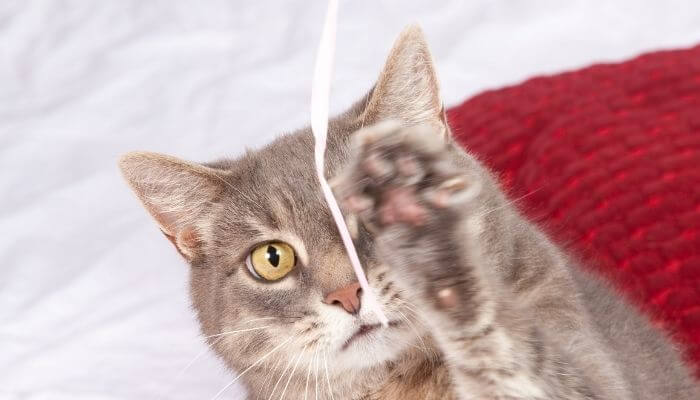
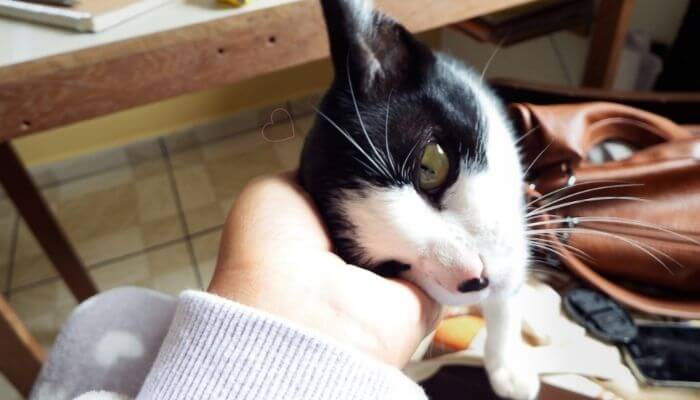



Leave a Comment